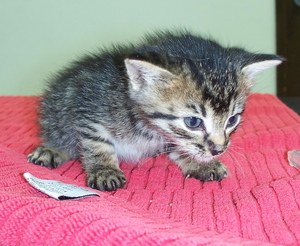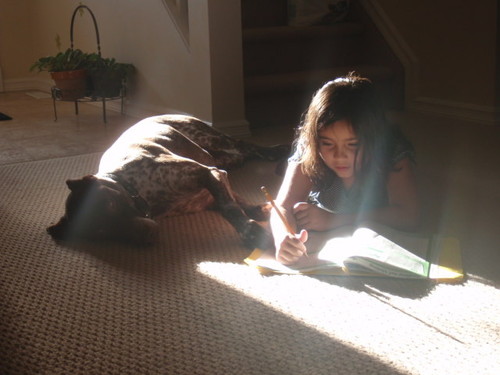Vaccination Protocals
Home » All Services » Vaccination Protocals
Our wellness and vaccination protocals are designed to prevent disease and prolong the lives of your companion animals.
Dogs:
Disease prevention is always less costly than dealing with the treatment of a disease once your pet has developed it. Canine Distemper is a viral infection that effects the respiratory, gastrointestinal and nervous system. Unfortunately this disease is contagious and serious, possibly even fatal. The good new is this disease is preventable through vaccination.
Parvovirus, another virus that affects dogs, is an extremely resistant virus that can survive on the ground for 6 to 12 months. It causes severe bloody diarrhea, vomiting and severe dehydration. The treatment of a severe case of Parvovirus infection can be very expensive to treat and could involve several days of hospitalization. You can help prevent this virus and decrease the symptoms by vaccinating your pet.
Canine infectious respiratory diasease complex, also known as "kennel cough", is a very highly contagious illness that affects the respiratory system in dogs. Dogs are able to contract this illness through close or direct contact with an infected dog or any surfaces the pet has had contact with, such as toys and bowls. The organisums associated with this illness can survive in the enviroment for weeks, which makes managing the infection very challenging. Several different types of bacteria and viruses can contribute to this illness. Bordetalla bronchiseptica (bacterium), canine parainfluenza virus and canine adenovirus type 2 are the most common. A frequent, honking cough is the most common symptom, which can lead to gagging or retching that involves froth that looks like vomit. Your pet may also experiance other symptoms such as sneezing and a runny nose and/or eyes. Most dogs that contract this illness will fully recover in 7-10 days if the symptoms are mild. However, depending on the organism(s) more servere signs may develop, such as lethargy, decreased appetite, fever, productive cough and rapid or laboured breathing which can develop into pneumonia. The best way to help prevent this illness in your pet is to vaccinate against the adenovirus type 2, canine parainfluenza and the bordetella vaccine.
Some diseases such as Rabies are fatal to dogs, cats and humans.
Cats:
There are many diseases that we vaccinate cats for, here are a few common diseases that owners should be aware of.
Feline Upper Respiratory Disease, also known as Feline Herpes, affects the respiratory system in cats. The most common symptoms seen are sneezing, nasal congestion, nasal and eye discharge, and conjunctivitis. If the disease progresses then more severe symptoms may occur such as inappetence and lethargy, which will cause more problems if untreated. Unfortunately, this disease is very contagious and can be spread by direct contact or through fomites (bowls, toys, enviroment). Cats may have the disease go dormant then flare up during stressful events like moving to another house or introducing a new family member (animal or human). The treatment for this disease depends on the orgamisum that affects the body and the symptoms associated with it, speak with your veterinarian if any of the symptoms listed above occurs with your cat. The good news is that we are able to prevent this disease with an annual vaccine.
Feline Leukemia Virus

Our puppy wellness program is designed to offer your new puppy all the benefits of veterinary services available to him or her from 6 weeks of age to 16 weeks of age. Included in this service is a series of examinations and vaccinations including Canine Distemper, Parvovirus, Adenovirus-2 strains, Bordetella & Parainfluenza to prevent kennnel cough & Rabies. Initial vaccinations can be started at 6 weeks of age. A series of booster vaccinations are given at 9, 12 & 16 weeks of age. It is very important that your puppy be brought in for boosters at the correct time to maximize the protection that the vaccines will give your puppy.
We recommend deworming for the most common intestinal worm of puppies – roundworms. Roundworms can cause gastrointestinal signs such as vomiting and/or diarrhea. We recommend deworming every 2 weeks until 4 months of age.
There are other parasites that can cause similar symptoms and can even cause your puppy to become anemic (low red blood cells). Performing a fecal test will allow us to treat your puppy accordingly. Although some worms are visible to the naked eye, most worm burdens are diagnosed by examining the stool of your puppy microscopically.
At each visit your puppy will be given a complete physical exam. Nutritional requirements will be discussed. House training, handling & any behavioral issues will be discussed. We are very happy to answer any questions you may have.
One of the most important things you can do to insure your new puppy lives a long & healthy life is to begin proper dental care at an early age. Studies have proven good dental care throughout the life of your dog will result in your dog living on average 2 years longer than without good dental care.
We will clip your puppies nails.
We strongly recommend you consider purchasing pet insurance as there are board certified veterinary specialists available to perform unique specialized procedures should your pet unfortunately require such a procedure to save its life.

Our kitten wellness program is designed to offer your new kitten all the benefits of veterinary services available to him or her from 8 weeks of age to 16 weeks of age. Included in this service is a series of examinations and vaccinations including Panleukopenia (Feline distemper), Rhinotracheitis, Calici virus (2 strains-one very virulent), Feline Leukemia & Rabies. Initial vaccinations can be started at 8 weeks of age. A series of booster vaccinations are given at 12 & 16 weeks of age. The vaccines that are recommended depend on whether your kitty will be an indoor or outdoor cat. It is very important that your kitten be brought in for boosters at the correct time to maximize the protection that the vaccines will give your kitten.
We recommend deworming for the most common intestinal worm of kittens – roundworms. Roundworms can cause gastrointestinal signs such as vomiting and/or diarrhea. We recommend deworming every 2 weeks until 4 months of age.
There are other parasites that can cause similar symptoms. Performing a fecal test will allow us to treat your kitten accordingly. Although some worms are visible to the naked eye, most worm burdens are diagnosed by examining the stool of your kitten microscopically.
At each visit your kitten will be given a complete physical exam. Nutritional requirements will be discussed. Litter training, handling & any behavioral issues will be discussed. We are very happy to answer any questions you may have.
One of the most important things you can do to insure your new kitten lives a long & healthy life is to begin proper dental care at an early age. Studies have proven good dental care throughout the life of your cat will result in your cat living on average 2 years longer than without good dental care.
We will clip your kittens nails if you wish.
We strongly recommend you consider purchasing pet insurance as there are board certified veterinary specialists available to perform unique specialized procedures should your pet unfortunately require such a procedure to save its life.

The most important health service you can have done for your pet is the annual physical exam. On the years that your pet requires booster vaccinations this can be done in conjunction with the vaccinations.
A comprehensive physical exam includes:
- assessing the body condition score of your pet (whether it is overweight & by what degree).
- examining the skin & coat.
- palpating lymph nodes, mammary glands, the entire body for growths and the abdominal cavity.
- an otoscope exam of the ears.
- an ophthalmic exam (check the eyes).
- auscultation of the heart and lungs.
- discuss any concerns you may have and any abnormal findings found on the physical exam.
- give recommendations.
Additional services that may be recommended for your adult pet include but are not limited to: blood testing, fecal testing, and urine testing. Your personal yearly check up at your doctor is likely to include these tests and so should your pet’s yearly exam. Every year we detect many disease processes in apparently ‘normal’ adult animals. The results help us address problems in the early stages. Early diagnosis and appropriate treatments can result in your companion living a longer healthier life.

Once your dog turns 7 years of age or your cat turns 8 years of age, we recommend that they undergo a thorough senior wellness exam and diagnostic work-up. Even though you may believe your pet is normal, there are many disease processes that do not show any outward signs until the disease is quite advanced. More advanced diseases can be more difficult to treat and are not always as responsive to treatment as diseases diagnosed early.
In senior dogs kidney disease, dental disease, heart disease, obesity, degenerative joint disease (arthritis) & cancer are of particular importance. Pain management for degenerative joint disease in large breed dogs can give these dogs a good quality of life for months to years.
In senior cats kidney disease, hyperthyroidism, diabetes, obesity and hypertension (high blood pressure) are the diseases we see most often.
Early detection of these disease conditions will allow us to administer the appropriate treatments to help extend your pet’s life.
A thorough physical exam and a comprehensive geriatric blood panel are cost effective and are a good starting point as to the health status of your pet.




